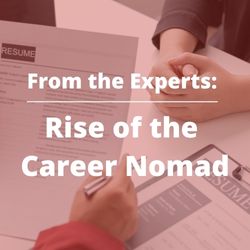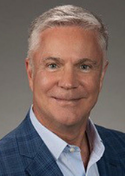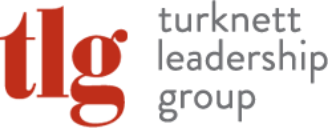
Today, employees are making career moves more frequently than ever before, giving rise to what is known as the “career nomad”. Many are seeking new challenges, greater purpose, recognition, and flexibility. This is resulting in employees frequently switching companies, even careers! All of this is happening as organizations fight to keep their best talent. Given the rise of the career nomad, we asked our experts what new opportunities and challenges they are seeing in their clients, and, how they would advise organizations who are hiring or retaining people with this mindset.
Answers From the Experts:
 Lyn Turknett, Co-founder and Co-chair, TLG
Lyn Turknett, Co-founder and Co-chair, TLG
How would you advise companies on hiring or retaining people with a career nomad mindset?
The difficulties of hiring and retaining people seem to keep ratcheting up, despite the economic headwinds. This hit my inbox this morning: Unlimited Vacation as the newest gambit to keep employees. “Career nomads” seem to be defined as hard-to-retain employees on steroids – people who are bright, agile, and creative – and who can and will leave more quickly than others for new opportunities. Unlimited vacation could wind up being table stakes for them!
Some organizations seem to be realizing now that they may have overvalued “career nomads,” and are paying attention again to those willing to develop deep experience within the organization. The answer, as in most things, is likely a balanced approach. I don’t have an answer, but a few thoughts come to mind for dealing with the “hard to keep” nomads:
1.) For the bright, learning-agile, easily bored employee, organizations and leaders need to do be certain they are providing the things everyone needs. Career nomads are the people who are most capable of getting another job, so will leave quickly when the basics are off.
- Give autonomy when possible. We’ve known for a long time that humans are less stressed and more energized when they have some sense of control over their environment. That’s even more true of the typical career nomad. Move decisions to the lowest level appropriate and involve employees in decisions when possible. Daniel Pink’s Drive is still one of the best books ever for understanding motivation, and I still love this animated summary of the book.
- Focus on psychological safety in every team – be sure everyone has voice, feels included, and is willing to risk speaking up when they have an idea or see a mistake. Normalize productive debate.
- The two other motivators Pink focuses on in Drive – mastery and purpose – are important to everyone, and purpose has become an even more important motivator in the time of the Great Rethinking. Mastery – continuous skill development and learning – may be even more important to career nomads.
2.) Career nomads may also like some things that others don’t.
- Many employees resist change, but career nomads may like changing projects often, and often seek out new challenges.
- Ambiguity is stressful to most of us, but career nomads may not just tolerate ambiguity, they may want it. They are fine with ambiguous, broad job descriptions – it gives them more leeway and more opportunity for variety. Let them problem solve, involve them in strategy, and, most of all, listen to their ideas
3.) Consider pre-employment screening for conscientiousness.
I am not certain of this point, but I’d want, as a hiring manager, to test prospective employees who seem to have a “career nomad” profile for conscientiousness. Most people in higher level positions have a mid-level score on conscientiousness, not a super high score, but I’d rule out applicants who score low. On a big-five personality assessment, you’d expect career nomads to have a high score on Openness to Experience, but you’d want the profile to also include a mid-level Conscientiousness score, not a low one. When the conscientiousness score is extremely low, there is likely to be no sense of loyalty or gratitude for career investment on the part of the company.
 Robin Mladinich, CPCC, ACC, Senior Consultant, TLG
Robin Mladinich, CPCC, ACC, Senior Consultant, TLG
With the rise of the career nomad, what new leadership opportunities and challenges do you see with your clients?
In the past decade we have seen a rise in the career nomad as the millennial workforce has wanted and expected more from organizations. Having an impact quickly and being in an environment they love is important. Millennials have a desire to move up at a fast pace and to be appreciated and recognized. With the onset of Covid-19 paired with low unemployment, it is not just the millennials jumping ship. Covid has made people reevaluate what is important, how they want to work, and their career path. The low unemployment rate has provided people with opportunities to transition to a new organization or a different role entirely. The current economic situation provides individuals with opportunities to leverage their skills in a flexible work environment that matches their values. According to the Bureau of Labor Statistics, 38 million people left their jobs in 2021 and according to Willis towers Watson’s 2022 Global Benefits Attitudes Survey, 44% of employees are “job seekers.” . People are seeking flexibility, meaningful work and are experiencing burn-out at high rates.
The challenges they face are determining the best fit, developing the skill sets they need to succeed, letting go of the fear of the unknown, and having the courage to take that next step.
The career nomads positively and negatively affect the organizations, and the people they leave behind. They often come in with a fresh perspective and energy. However, when they stay such a short time, it is costly to replace them, and others must pick up their responsibilities in the meantime.
In this new environment, how would you advise the company hiring or retaining people with this mindset?
Companies need to nurture, mentor, and develop people with the career nomad mentality. If they keep these people challenged enough to stay and help them grow, they are more likely to retain them.
The organization should create a plan with these individuals so that they can see their career path. Expose them to a variety of roles within the organization. Make leadership development a priority. Listen to what motivates them and keeps them engaged. Support work-life balance. Provide learning opportunities and challenging assignments that align with their purpose.
 Bill Dickinson, D. Min, RCC, Senior Consultant, TLG
Bill Dickinson, D. Min, RCC, Senior Consultant, TLG
With the rise of the career nomad, what new leadership opportunities and challenges do you see with your clients?
Our clients are clearly looking for the ability to flex their own self-agency. They want autonomy and flexibility when it comes to when and how they work. And so, it is with those who coach and lead with them. In other words, we, as leaders, need to embrace learning agility and flexibility with how we provide services virtually or in any form of a hybrid model. Very specifically, how can we inspire the career nomad to lead others more seamlessly—and despite how their colleagues are showing up in the office or from home. The use of storytelling, whiteboards, polls, videos, and shared accountability for facilitated conversations are skills that need to be taught and modeled for engagement. Creating a psychologically safe space is even more important given time zones, likely cultural differences, and the perceived biases of working from the office and/or home. In other words, all are valued and no matter where they are located. The team leader especially will need to overcome any assumptions of a preferred work pattern or location to ensure fairness and equity. Indeed, these leaders have an obligation to stay current with recommended best practices and growing their own emotional intelligence.
In this new environment, how would you advise the company hiring or retaining people with this mindset?
My role as a senior leadership advisor is to ensure that the whole person is valued and developed in their place of employment. I’m going to coach leaders to recognize that their ability to connect with and validate the good work of their people is essential to not only their credibility but also their ability to retain others. COVID-19 changed the playing field. The ecosystem within business today requires a human-first mentality. It is the life experience vs. the employee experience that we are managing to in today’s hybrid work environments. This means I’m going to advise heightening one’s own learning agility, developing stronger people-leader capabilities, and regulating one’s emotions when flustered or under stress. I’m going to suggest stronger facilitation skills for any meeting that has others virtually participating. And I’m going to ensure that technology is up to date—internally and externally—to create environments that are free from any distraction that prevents audio clarity and visual transparency and engagement. There are many others, and my hope is that we continue learning with and from one another as we are still finding our way. Good luck.
 Anne Quiello, M.S., PCC, Senior Consultant & Director of Women in Leadership, TLG
Anne Quiello, M.S., PCC, Senior Consultant & Director of Women in Leadership, TLG
With the rise of the career nomad, what new leadership opportunities and challenges do you see with your clients?
The challenge I have seen most is how to keep and engage team members working remotely. These leaders are learning how to be more agile in how to use technology to streamline communication – for example, using the Cloud for file sharing, sharing screens during meetings, and integrating project management applications with Zoom and Teams. Also, leaders are having to be especially mindful of empathetic listening skills, sometimes harder to do through a video screen. They are being intentional to ask about family and hobbies, and to acknowledging signs of emotional distress from potential burnout. And finally, remote work can further blur the boundaries between work and life. Leaders need to care enough to allow their team members to set boundaries around schedules, work assignments, and performance expectations.
In this new environment, how would you advise the company hiring or retaining people with this mindset?
Companies sometimes hire people with the very same attributes – learning agility, curiosity, and tolerance for ambiguity – which lend themselves to job hopping. Learning agility (“knowing what to do when you don’t know what to do”) is in fact a key predictor of future success on the job, so organizations should screen for this ability. At the same time, they should create and implement an internal means for a career nomad to navigate their career within the company, via a recognized career architecture. And provide mentoring and development opportunities from the very beginning.
Finally, according to June 2022 Work from Home Research, we are learning that the desire to work from home increases with age and that only 24% of 20 somethings (Gen Z) prefer full-time remote work. They want more social interaction, opportunity to network, and access to mentoring. Therefore, consider offering a hybrid workplace option of working a few days each week in an office environment as a retention strategy.
 Brad Parcells, PCC, Senior Consultant
Brad Parcells, PCC, Senior Consultant
With the rise of the career nomad, what new leadership opportunities and challenges do you see with your clients?
- Can they articulate their story, passions, values, and beliefs effectively in interviews and when they land the role, to their new team? Understanding what the foundational principles of their leadership are and how do those principles show up and show up well.
- Articulating in compelling ways because they are leaving their career and chasing after something else. What are they chasing and why?
- Really understanding “what got them here, won’t get them there.” Can they articulate how their strengths become their biggest weaknesses?
In this new environment, how would you advise the company hiring or retaining people with this mindset?
- Be flexible, but stick to your core values, mission, and belief. Hire slow, fire fast.
- Retaining people starts directly with their line leader. How is the company developing their line leader to be a more impactful leader to understand their people, their motivations, and their development gaps?
 Vicki Abelson, ACC, Senior Consultant – Healthcare
Vicki Abelson, ACC, Senior Consultant – Healthcare
How would you advise companies on hiring or retaining people with a career nomad mindset?
Simon Sinek says that you hire for attitude, not skill. This idea has become more important now than ever. As people shift and pivot their careers, they are looking to enter new industries, not just new companies. The traditional way of recruitment is to screen for candidates that have experience in your exact industry, or at least something similar. Yet having this very narrow scope, limits us from seeing truly wonderful candidates in unrelated industries. When the job market is competitive, we must be willing to broaden our search. We also must be willing to put in the time to train new team members who may be new to our industry. Yes, this may seem like a lot more work from the onset but investing in talented people who show initiative and bravery to go after something new will pay dividends.
Explore the rest of our team!

